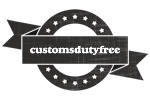Botswana is a landlocked country located in Southern Africa. The citizens refer to themselves as Batswana. Formerly the British protectorate of Bechuanaland, Botswana adopted its new name after becoming independent within the Commonwealth on 30 September 1966. Since then, it has maintained a strong tradition of stable representative democracyMajority rule, by which the biggest proportion of members of..., with a consistent record of uninterrupted democratic elections. Botswana is topographically flat, with up to 70 percent of its territory being the Kalahari Desert. It is bordered by South Africa to the south and south east, Namibia to the west and north, and Zimbabwe to the north east. Its border with Zambia to the north near Kazungula is poorly defined but at most is a few hundred metres long.
In Botswana, the Department of Mines and Ministry of Minerals, Energy and Water Resources, led by Hon Onkokame Kitso Mokaila in Gaborone, maintains data regarding mining throughout the country. Debswana, the largest diamond mining company operating in Botswana, is 50% owned by the government. The mineral industry provides about 40% of all government revenues. In 2007, significant quantities of uranium were discovered, and mining was projected to begin by 2010. Several international mining corporations have established regional headquarters in Botswana, and prospected for diamonds, gold, uranium, copper, and even oil, many coming back with positive results. Government announced in early 2009 that they would try to shift their economic dependence on diamonds, over serious concern that diamonds are predicted to dry out in Botswana over the next twenty years.
Botswana is a member of the Southern African Development Community (SADC).
Botswana is the world’s largest producer of diamonds and the tradeThe buying and selling or exchange of goods and services. Th... has transformed it into a middle-income nation.
The country has had its shareAny of the equal units into which a company's capital stock ... of problems: It once had the world’s highest rate of HIV-Aids infection. UN figures for 2014 suggest that for adults aged 15 to 49 the prevalence rate is 25%.
Facts: CapitalThe net worth of a business, including assets, cash, propert...: Gaborone, Population: 2 million, Area: 581,730 sq km (224,607 sq miles), Major languages: English (official) and Setswana, Major religions: Christianity and indigenous beliefs, Life expectancy: 54 years (men) and 51 years (women), Currency: Pula
Important Details
- Country ISO3:BWA
- Country Code:72
- Income Group:Sub-Saharan Africa
- Lending Category:Upper middle income
- Region:IBRD
- Currency Unit:Pula
- WTO Member:YES
- TradeThe buying and selling or exchange of goods and services. Th... organisations:Not available
- world rank:30
- Regional Ranking:2nd in Sub-Saharan Africa

